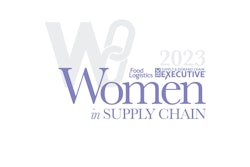
At first glance, the final 2022 job report from the U.S. Department of Labor (DOL), Bureau of Labor and Statistics (BLS) seemed to indicate positive developments. Afterall, it pointed to steady employment growth and unemployment rates at a five-decade low. For the trucking and transportation industry, however, the counterbalance was that in 2022 average job growth in transportation and warehousing was about half the rate experienced in the previous year.
Across the economy, the ups and downs of the job market can be debated. But for those teams who have to address the challenges that come with managing routine business processes on a daily basis, the impact is more than fundamental. With other industries showing strong job growth, for example, competition for desirable talent across the supply chain is poised to continue intensifying.
What all that BLS data tells you is that there may be a greater need today to consider outsourcing some of your essential business processes. Whether a company chooses nearshoring or offshoring for their outsourcing needs, it is critical to select an experienced and dedicated partner with the right services, technology and industry expertise.
Companies need the best resources for handling business processes to achieve efficient and productive transportation and logistics operations to foster revenue growth, gain and maintain a competitive advantage, streamline operations and boost profitability. If that’s something you’re now considering, here’s what you should look for once you make that decision.
One very important first step is to understand that while there isn’t a one-size-fits-all solution; the criteria you prioritize will determine if your choice is effective and your approach is successful.
Four Factors
Here are the top four factors for transportation and logistics companies to consider when searching, researching and choosing a prospective BPO partner or solution:
1. Consider your provider’s dedication to meeting your operation’s needs
Having the confidence that your BPO partner will prioritize facilitating the needs of your logistics operation is crucial, even more so considering the constantly changing and unpredictable freight market.
Ask if they have the ability to quickly scale up or down the services they provide as your freight volumes change. Find out if they have the resources in technology and talent to assist you when unforeseen circumstances arise. Inform them of your business goals and have them pitch how their work supports achievement of those goals. It’s very important to know that your provider will work diligently as an extension of your team.
Consistent, timely and frequent communication is vital for any business, and perhaps even more so in a BPO relationship. Does the provider you’re considering have those capabilities? Are they transparent and will they be a true partner, not just a vendor?
2. Insist on the right Service Level Agreements (SLAs)
Uncharted waters are common in supply chain and logistics operations. Does your BPO provider have the experience and expertise to help you navigate them? At their core, SLAs are contractual agreements, so making sure they include key components that reflect your needs and business goals is essential. Those include:
- Increased visibility: Communication and reporting capabilities that allow you to make better business decisions - whether you’re conducting business as usual or facing a highly disruptive external market force.
- Accuracy rates: Agree on KPIs that reflect your company’s customer service and accounts receivables goals, including the possibility of incentives for meeting and exceeding accuracy rates defined in the SLAs.
- Average handling time: For voice-related functions, such as inbound customer support requests, set metrics that align to your customer experience goals.
- Robust data protection: Confirm that BPO is delivered in a highly secure manner, with protections in place for network infrastructure, your data and that of your customers.
- Processing speed and service hours: Ensure that turnaround time and processing schedules make sense for your operation.
- Productivity rates: For inside sales, you may want to use revenue per rep. For data entry, you may want to use keystrokes per hour. Either way, setting this SLA will lock in your outsourced team’s productivity at your desired output level.
- Cost containment: Choosing pricing that does not penalize you for growth and also safeguards you from market slowdowns. In short, a long-term SLA should shield you, not just your BPO provider, against unforeseen circumstances.
3. Look into the provider’s application of technology
While technology innovations can be exciting, it’s all too easy to get caught up in the promise of new tools, products and services. Never implement a BPO solution without ensuring that the technology behind it makes your operation smarter and more strategic.
It’s important that your partner remains current with the right technology for your business and knows how to apply new innovations that make the most sense. A good sign is a business process outsourcing provider with a track record of developing programs and technologies in-house that are designed specifically to make their processes for clients more efficient and customizable as needed.
4. Find an experienced business processing solution provider
Don’t settle for the least costly or a less experienced company in the BPO space. Although you’re saving costs, you are about to make a significant move by entrusting key business functions into the hands of a provider. A good threshold is industry specialization for a minimum of ten years– a vendor who is a true expert in not only the processes you’re looking to outsource, but in the industry you serve as well. Remember they represent you, so experience not only with process but with adapting to company culture is key.
Due diligence should include asking these questions:
- What are their existing clients saying about their accuracy, capabilities, and reliability? Don’t be afraid to vet their referrals and industry sources.
- Do they truly understand the logistics industry and your business model?
- Do they know and can they fully support your business goals?
- Can their capabilities, capacities, and functionality adapt with your changing needs? How flexible and customizable are their solutions and systems?
- How many years of experience do they have?
- Do they have solid Business Continuity Planning?
The bottom line
Overall, an experienced and dedicated team that is able to work around-the-clock as an extension of your company is essential to any successful business process outsourcing plan. Providers who offer the most effective and correct mix of processes, technology and knowledge are critical as well.
Taking the time to make an effective offshoring vs. nearshoring— or rather an outsourcing— decision will provide the most value by allowing you to focus your resources on what really matters, the ability to drive growth and improve profitability.


















